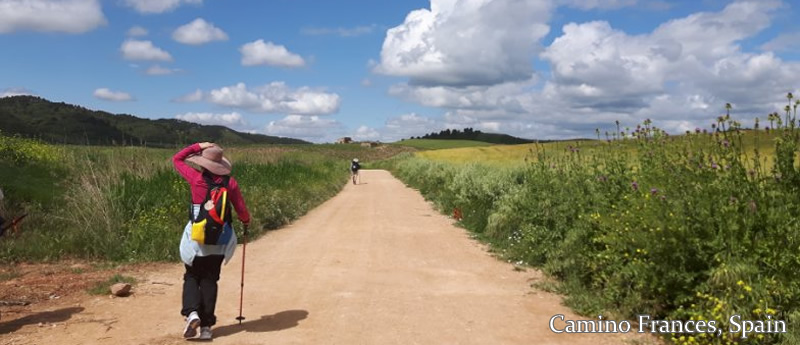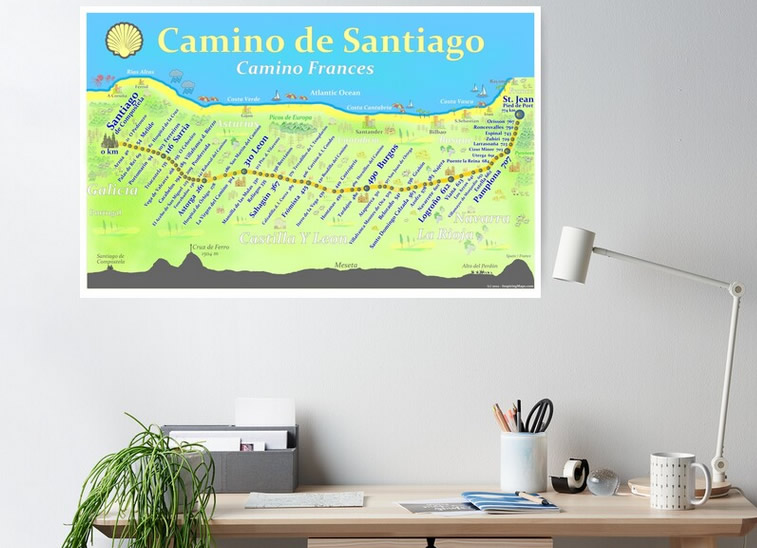Why Should I Walk the Camino de Santiago? Discover the Benefits and Spiritual Journey
Walking the Camino de Santiago is more than just a physical journey; it is a profound experience that offers personal growth and reflection. Many individuals seek the pilgrimage for various reasons, from spiritual awakening to the desire for adventure. The Camino provides an opportunity to disconnect from the hustle of everyday life and reconnect with oneself amidst stunning landscapes and rich history.
As pilgrims traverse the ancient paths, they encounter a sense of community with fellow walkers, creating a shared bond through shared experiences. The journey challenges both mind and body, encouraging walkers to push their limits while fostering resilience. Each step taken along the Camino becomes a testament to personal endurance and discovery, making it a journey of a lifetime.

Engaging with local cultures and traditions adds another layer to this unique experience. From sampling regional cuisine to learning about historic towns, the path is filled with enriching encounters. Walking the Camino de Santiago offers not just a physical challenge, but a chance to embrace a transformational journey that resonates long after the final destination is reached.
Historical Significance
The Camino de Santiago holds deep historical roots and has significantly influenced European culture over the centuries. It began as a pilgrimage with profound religious importance and evolved into a cultural phenomenon.
Origins of the Pilgrimage
The origins of the Camino date back to the 9th century when the remains of Saint James were believed to be discovered in Santiago de Compostela, Spain. Initially attracting local pilgrims, it grew in popularity, especially throughout the Middle Ages.
This pilgrimage was one of three major Christian pilgrimages, alongside those to Jerusalem and Rome. Participants sought spiritual fulfilment and a chance to atone for sins. The Camino became a symbol of faith, uniting diverse peoples across Europe as they journeyed toward a shared religious goal.
Cultural Impact Over the Centuries
The Camino has left a profound cultural mark across Europe. It inspired countless artworks, literature, and music, reflecting its spiritual and existential themes. Many towns developed around the route, flourishing due to the influx of pilgrims.
The architecture along the Camino showcases a blend of styles, from Romanesque churches to Gothic cathedrals, often funded by wealthy patrons.
Festivals and traditions stemming from the pilgrimage continue today, fostering community and cultural exchange. The influence of the Camino can be seen in the modern revival of interest in spiritual journeys and walking as a form of reflection and personal growth.
Spiritual and Personal Growth
Walking the Camino de Santiago offers profound opportunities for spiritual and personal growth. Many pilgrims find themselves on a quest for deeper meaning, fostering connections within themselves and with others along the way. The journey encourages introspection and fosters a sense of community.
Quest for Inner Peace
The Camino serves as a pathway to inner peace. The rhythm of walking and the simplicity of daily life on the trail allow pilgrims to disconnect from distractions. With each step, individuals can find clarity and calmness.
Practically, the natural landscapes provide a serene backdrop for contemplation. Experiences such as meditative walking or quiet moments at ancient churches enhance this sense of tranquillity.
Pilgrims often report feeling more centred and balanced after completing the journey. Such transformations can lead to lasting changes in perspective and emotional well-being.
Opportunity for Self-Reflection
Self-reflection is an integral part of the Camino experience. As pilgrims walk for hours each day, they are afforded time to think about their lives, choices, and aspirations. This introspection often leads to significant insights.
Individuals may address unresolved issues or reconsider long-held beliefs. Writing in journals during the journey can help articulate these thoughts.
Engaging with others on the trail can also stimulate reflection, as shared stories and experiences prompt deeper understanding. This process can reveal personal strengths and weaknesses, facilitating growth.
Experiencing Community and Fellowship
The Camino fosters a strong sense of community among its pilgrims. Meeting fellow walkers from diverse backgrounds creates opportunities for exchange and support.
As they share meals, rest stops, and conversations, friendships often form, enriching the experience. These bonds can return a sense of belonging that many pilgrims seek.
The communal spirit seen in local albergues (hostels) or cafés enhances the journey. Acts of kindness, such as sharing food or helping others, exemplify the fellowship experienced along the way. This interconnection profoundly impacts an individual’s journey towards personal growth.
